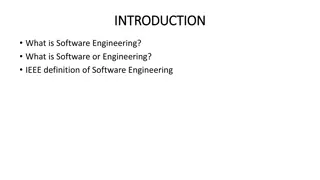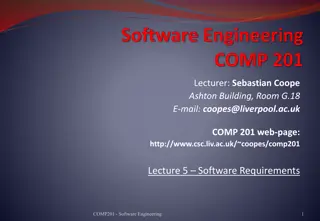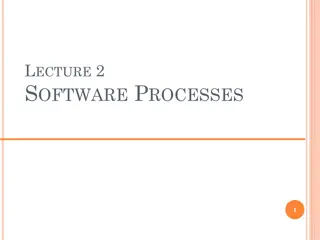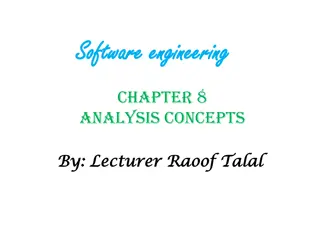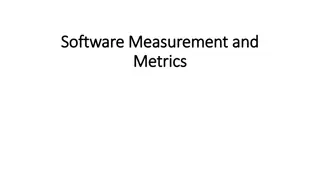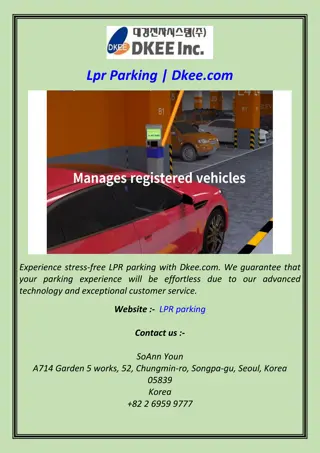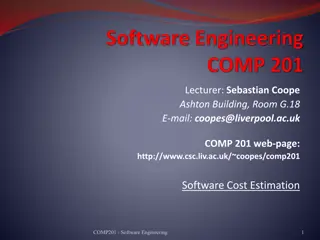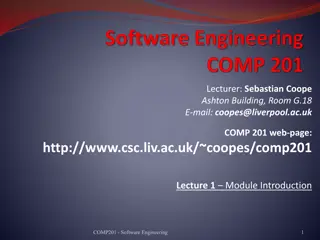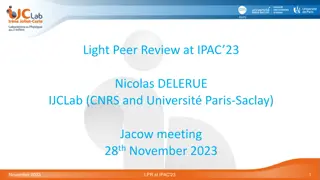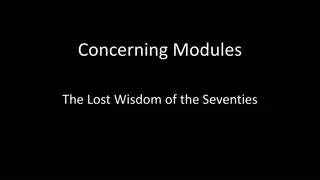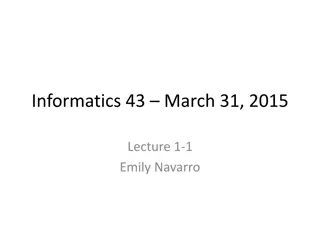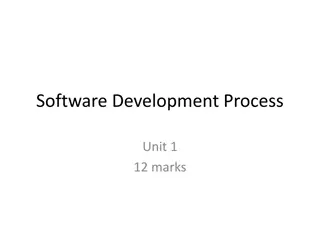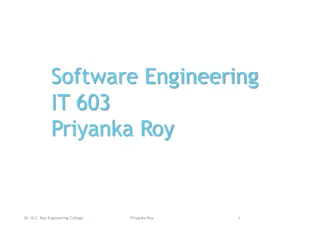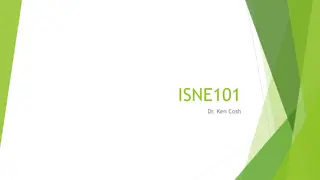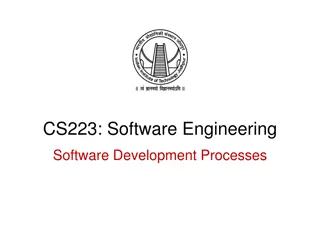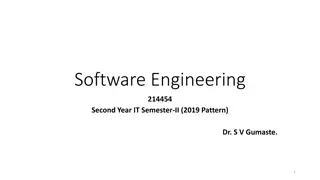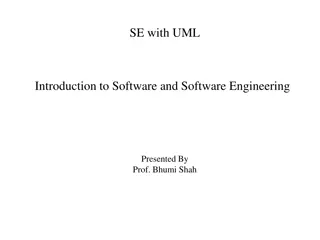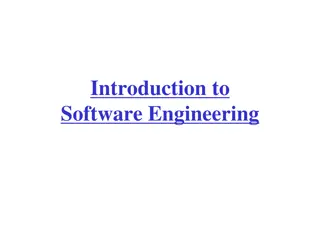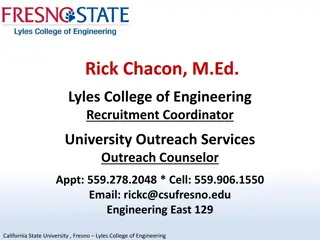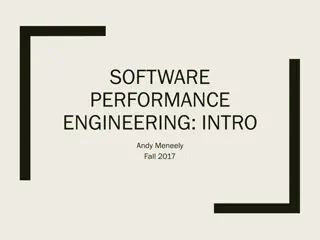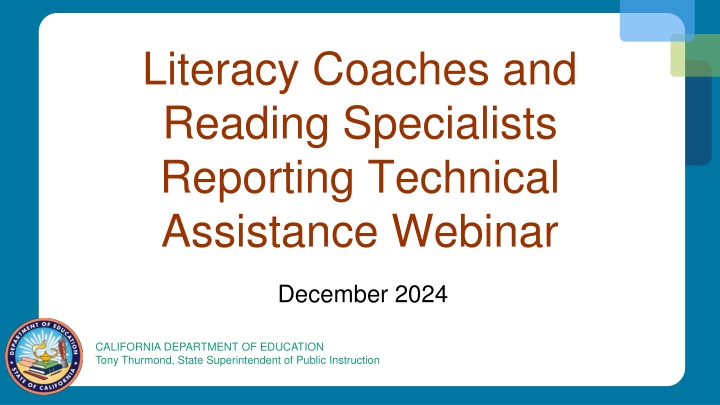
Introduction to LPR 7150.2B Software Engineering Requirements
This presentation provides an overview of the LPR 7150.2B document, focusing on changes, document structure, roles, compliance matrix, and more. It delves into the audience, course objectives, and what has changed in response to NPR 7150.2B. Learn about tailoring authority shifts, technical documentation updates, and Langley-specific implementations.
Uploaded on | 0 Views
Download Presentation

Please find below an Image/Link to download the presentation.
The content on the website is provided AS IS for your information and personal use only. It may not be sold, licensed, or shared on other websites without obtaining consent from the author. If you encounter any issues during the download, it is possible that the publisher has removed the file from their server.
You are allowed to download the files provided on this website for personal or commercial use, subject to the condition that they are used lawfully. All files are the property of their respective owners.
The content on the website is provided AS IS for your information and personal use only. It may not be sold, licensed, or shared on other websites without obtaining consent from the author.
E N D
Presentation Transcript
Literacy Coaches and Reading Specialists Reporting Technical Assistance Webinar December 2024 CALIFORNIA DEPARTMENT OF EDUCATION Tony Thurmond, State Superintendent of Public Instruction
Welcome and Agenda Overview of the Literacy Coaches and Reading Specialists (LCRS) program Allocations and apportionments Allowed expenditures Reporting overview Questions and answers Closing
Introduction Jennifer Howerter Education Programs Consultant Professional Learning Support Division California Department of Education
Authorizing Statute (1) Assembly Bill 181, Section 137 (Chapter 52, Statutes of 2022) authorizes the LCRS program. The sum of $250 million was appropriated from the General Fund to the State Superintendent of Public Instruction (SSPI) for the LCRS program. Of the total funding, the SSPI allocated $225 million to eligible school sites to develop school literacy programs, employ and train literacy coaches and reading and literacy specialists, and develop and implement interventions for students in need of targeted literacy support.
Authorizing Statute (2) Senate Bill 114, Section 104 (Chapter 48, 2023), authorizes an additional sum of $250 million to augment the LCRS program. Of the total funding, $248 million was allocated to eligible school sites for the same purposes as the first allocation.
Allowable Uses of Funds LCRS funds are to be used for: Developing school literacy programs. Employing and training literacy coaches and reading specialists. Developing and implementing interventions for students in need of targeted literacy support.
School Literacy Programs (1) Expenditures for school literacy programs include: 1. Developing a school literacy plan that includes goals and actions to improve literacy acquisition for pupils in preschool, if applicable, and grades kindergarten through three, inclusive. The plan shall identify metrics to measure progress toward the goals and actions. 2. Hiring at least one literacy coach or reading and literacy specialist per school to support educators and pupils in improving literacy instruction and pupil outcomes.
School Literacy Programs (2) 3. Increasing access to evidence-based literacy instruction, through strategies, including, but not limited to, any of the following: Providing bilingual reading specialists to support dual language acquisition and English language development (ELD) programs. Developing and implementing culturally responsive curriculum and instruction. Providing professional development (PD) for educators and school leaders in literacy instruction and the use of data to identify and support struggling pupils. Providing PD for educators and school leaders regarding implementation of English Language Arts/ELD Framework and the use of data to support effective instruction.
School Literacy Programs (3) 4. Establishing an evidence-based family literacy initiative, which may include but is not limited to, the following: Family literacy plans that identify literacy and biliteracy goals, benchmarks, and roles for all family members. Family literacy home visiting programs, including, but not limited to, promotora family literacy outreach specialists. Local educational agencies (LEAs) may establish literacy and biliteracy home visits to engage families in how to best support their pupils and every family member in reaching their literacy goals.
School Literacy Programs (4) Extended-day, summer, or weekend family institutes related to literacy and biliteracy. LEAs are encouraged to work with in-house expanded learning programs to establish literacy and biliteracy support programs and literacy enrichment programs during after school, weekend, and summer hours. Public library family literacy partnerships, including, but not limited to, digital tools to support whole family literacy.
Reporting (1) Annual reports will be due no later than September 30 each fiscal year. A reporting template is available on the CDE LCRS web page: https://www.cde.ca.gov/pd/ps/lcrsprogram.asp The CDE is requiring annual reporting as a response to requests for detailed information in the legislative report, to justify future funding opportunities, and to confirm funding is being appropriately used and tracked at the local level.
Reporting (2) This report is at the LEA-level; however, we are asking for site-level data as well. Site-level data will be reported in the Site-level Data Collection spreadsheet In addition to completing the report online, you will email this spreadsheet to PLIO@cde.ca.gov.
Reporting Deadlines Cohort 1 September 30, 2023, report: Report activities between January 2023 through June 30, 2023. January 31, 2025, report: Report activities between July 1, 2023, through June 30, 2024. September 30, 2025, report: Report activities between July 1, 2024, through June 30, 2025. September 30, 2026, report: Report activities between July 1, 2025, through June 30, 2026. Spring 2027: final report due.
Reporting Deadlines Cohort 2 January 31, 2025, report: Report activities between January 2024 through June 30, 2024. September 30, 2025, report: Report activities between July 1, 2024, through June 30, 2025. September 30, 2026, report: Report activities between July 1, 2025, through June 30, 2026. September 30, 2027, report: Report activities between July 1, 2026, through June 30, 2027. Spring 2028: final report due.
What makes a complete report? 1) Submitting the online LEA-level report 2) Submitting the Site-level data collection spreadsheet to PLIO@cde.ca.gov
Accessing the Online Report Your login information will be emailed to the contact we have on file. Answer all applicable questions on each page. Answers will be automatically saved when you go to the next page. If you want to manually save, select the Save button. At the end of the report, you must select the Submit button to finalize your submission.
Online Reporting Overview Contact Information Funds Report Overview Literacy Coaches and Reading Specialists Information School and Family Literacy Plan Professional Learning Student Achievement Submission
Contact Information Program Administrator Fiscal Agent
Funds Report Overview Total Amount of Funds Used This Fiscal Year Executive Summary
Literacy Coaches and Reading Specialists Information Literacy Coaches Information Reading Specialists Information Bilingual Reading Specialists Information Successes and challenges
School and Family Literacy Plan Number of public libraries Expenditure type, amount, and detail Successes and challenges
Professional Learning Professional learning overview Types of professional learning offered Number of professional learning events Professional classification Total expenditure amount Expenditure type, amount, and detail Successes and challenges - - -
Impact on Student Achievement Locally-adopted assessments for LCRS sites for transitional kindergarten through grade 3
Submission The authorizing official must type their name in the field to certify the accuracy of the report. Select Next and then Submit . You will be provided with a confirmation number and printable version of your responses.
Site-Level Data Collection Overview Cohort 1 Funding Spent Cohort 1 Literacy Plans Cohort 1 Assessment Data Cohort 2 Funding Spent Cohort 2 Literacy Plans Cohort 2 Assessment Data
Funding Spent Site name(s) County-district-school (CDS) code(s) Dollar amount of LCRS funds used this reporting period
School and Family Literacy Plan (2) Site name(s) CDS code(s) Goals/actions of the school and family literacy plan(s) Metrics to measure progress on the school and family literacy plan(s) Number of family literacy outreach specialists and languages spoken by them Number of home visits, extended-day events, summer events, and weekend events and the number of families served at each
Impact on Student Achievement (2) Site name(s) CDS code(s) Percentage of students, broken out by subgroup, meeting or exceeding standards according to your local assessment data
Site-level Data Spreadsheet Walkthrough
Resources LCRS Program web page: https://www.cde.ca.gov/ci/pl/lcrsprogram.asp LCRS Cohort 1 Funding web page: https://www.cde.ca.gov/fg/fo/r14/litcoaches22result.asp LCRS Cohort 2 Funding web page: https://www.cde.ca.gov/fg/fo/r14/litcoaches23result.asp
Contacts LCRS Program questions: PLIO@cde.ca.gov

